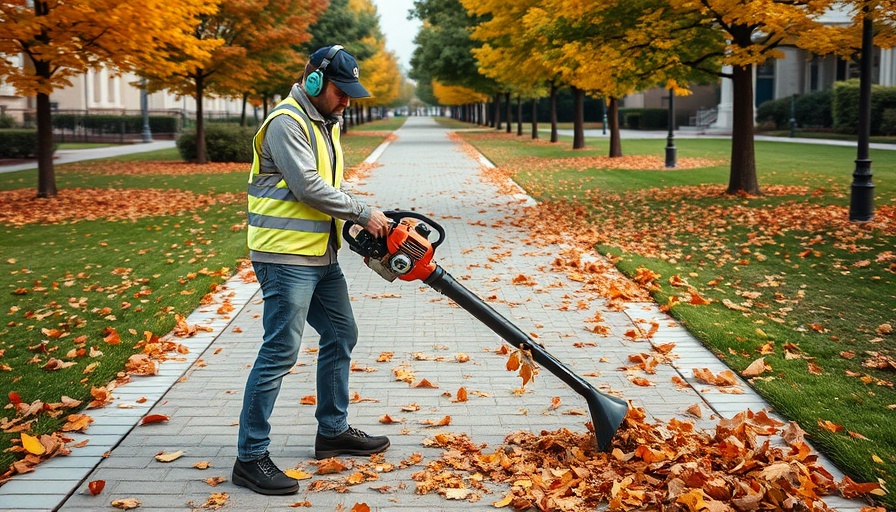
Cambridge Takes Bold Step: Banning Gas-Powered Leaf Blowers
In a move to enhance public health and reduce environmental impacts, Cambridge, Massachusetts, has officially banned gas-powered leaf blowers. This significant shift is part of a wider trend among cities aiming to combat pollution and noise while promoting sustainable landscaping practices. Officially effective as of March 15, 2025, the ban was previously announced in December 2023, providing homeowners and landscapers ample time to transition to quieter, electric alternatives.
Addressing Concerns Amidst Change
The transition to electric leaf blowers is not without controversy. Some local business owners have expressed concerns about increased costs and the lower power output of electric models compared to traditional gas blowers. Keri Brown, co-owner of R&S Landscaping, acknowledged that using electric equipment could slow down the cleaning process by 20% to 50% but saw this as a necessary evolution in landscaping strategies. This sentiment is echoed by Catherine Brownlee of Landscape Collaborative, Inc., who emphasized that achieving the same level of garden aesthetic with electric blowers may require more time and investment, potentially raising maintenance costs for consumers.
Future Outlook on Landscaping Practices
The city plans to extend the ban to professional landscaping businesses by March 15, 2026, which may reshape local landscaping practices significantly. To ease financial burdens, Massachusetts State Representative Michelle Ciccolo has proposed a law introducing tax credits for small landscaping companies purchasing electric equipment, subsidizing costs by up to 40%. This initiative could make the transition more financially viable, despite the upfront costs associated with new electric machinery.
Impacts on Landscaping and Local Environment
With electric leaf blowers only emitting a fraction of the pollution generated by gas-powered equipment, this move could lead to better air quality and reduced noise pollution across Cambridge. In fact, it has been reported that operating a gas leaf blower for just one hour can produce emissions equivalent to those from driving a car for approximately 1,100 miles.
As residents adapt to maintaining their gardens with less intrusive tools, expectations for traditional lawn aesthetics may need to shift. However, over time, these adjustments could cultivate a broader acceptance of natural landscapes that prioritize ecological balance over manicured perfection.
Potential for Statewide Adoptions and Broader Trends
This ban positions Cambridge among other progressive cities, such as Portland and Montclair, that have initiated similar legislation. As California continues to pave the way in environmental policy, it is conceivable that more states might follow suit with regulations aimed at reducing harmful emissions and promoting greener alternatives in landscaping.
Inspiring change in landscaping practices in urban settings not only addresses health issues but aligns with growing public awareness surrounding sustainability. As the trend toward eco-friendly practices gains momentum, residents and businesses can look forward to evolving methods that enhance their surroundings while protecting the environment.
 Add Row
Add Row  Add
Add 




Write A Comment